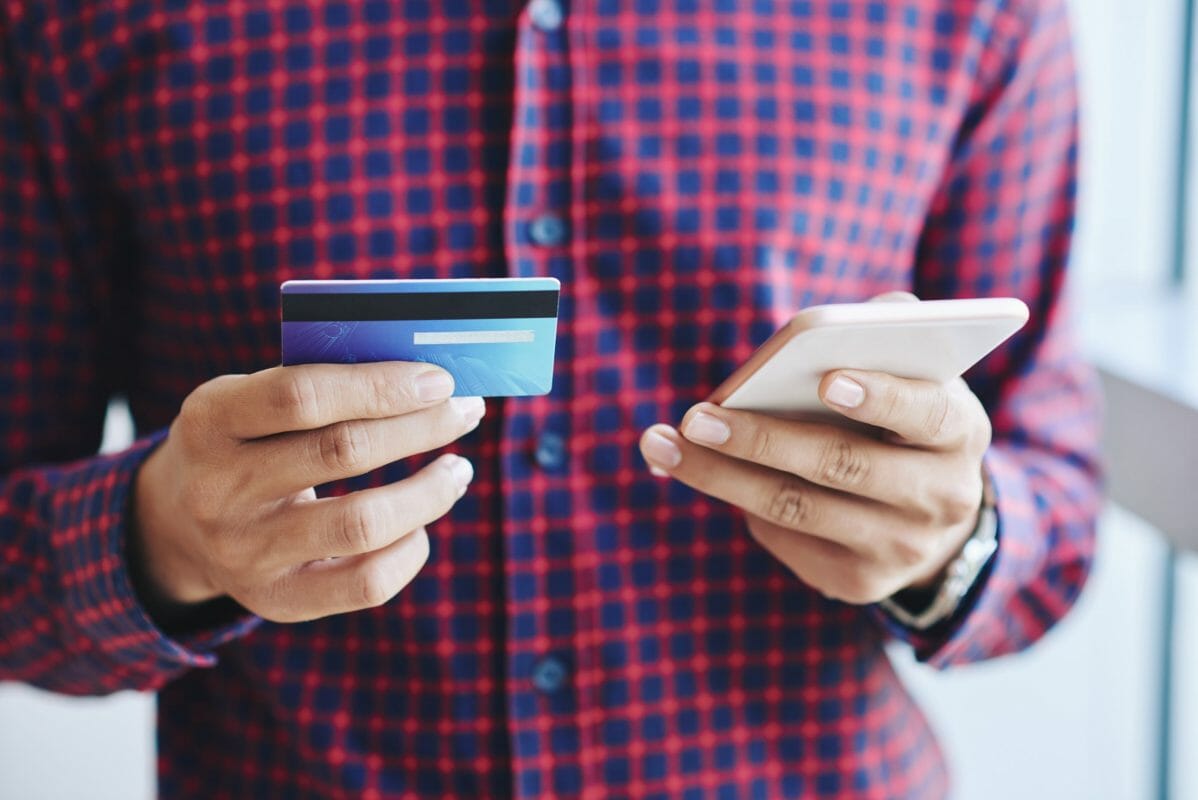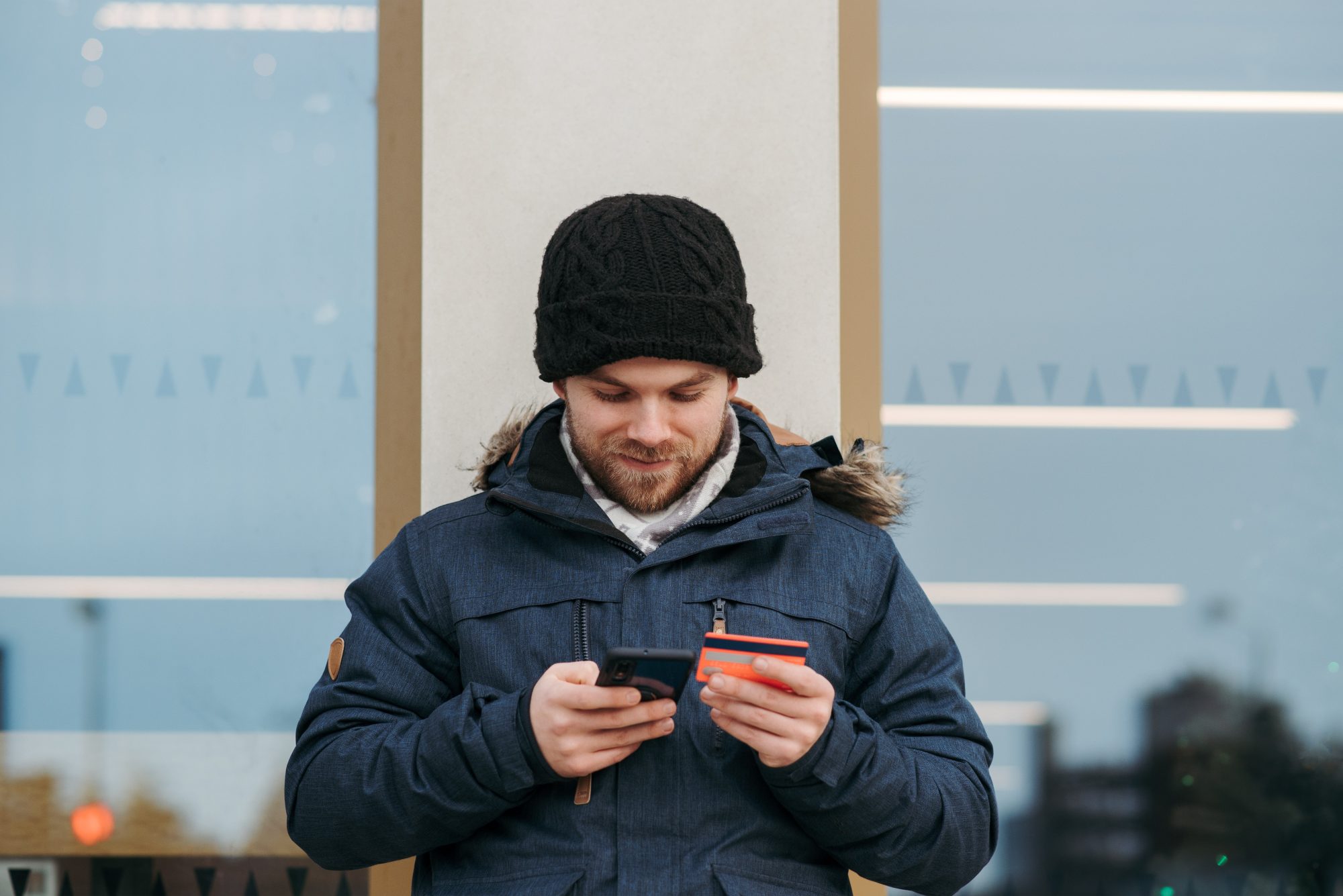When looking for things to purchase, or selling things you don’t need, we often don’t think about the potential hazards that could come from this. Scammers lurk online shopping sites, looking to scam either the seller or buyer out of their hard-earned cash. OfferUp is an app that people use to sell their items at a discounted price for buyers to purchase. Numerous fraudsters are aware of this application and employ cunning tactics to deceive individuals and extort money from them. Whether they masquerade as sellers or buyers, their scams often go unnoticed by those who become their victims. Therefore, it is essential to be vigilant and heed the following warning signs.
Types of OfferUp Scams

Fraudulent Check Scam
Scammers pretend to be buyers for a product. They send a fake check to the seller telling them to use a portion of the check for the shipping and handling fees. The seller deposits the check and keeps getting multiple calls from the scammer. The scammers demand that the seller send the money to them via wire transfer.
If the seller refuses, the scammers threaten the seller which causes them to feel fearful. The seller agrees and sends all the money to the scammer. Because of this, their bank account gets overdrawn since the check was fake.
OfferUp Fake Websites
A scammer creates a fake website that looks exactly like OfferUp. They email phishing links and create fake advertisements that will lure victims onto these websites. Once the victim clicks on the links or advertisement, malware gets installed on their device without them knowing about it. Then, there are fake items on the site that trick victims into thinking they can purchase these items. To avoid falling for fake items in online marketplaces, click here.
When they click on these items to purchase them, it takes them to an online payment form. The form asks them to pay using a wire transfer, gift card, or fake check. Once the victim enters this information in and fills out their personal information, a scammer can use it to steal their identities and drain their bank accounts.
Code Verification Scam
A scammer pretends to be the buyer and tries to get the seller’s phone number. They come up with an excuse that allows them to pretend they need to text them a code in order to verify that they are a real person. Once they get the seller’s phone number, they try to complete the purchase away from the app.
They do this so that they can send the seller a fraudulent check instead of paying on the app. With the fake check, they then ask you to deposit it and send them part of the money. However, the bank finds out within a few days that it’s a fake check which becomes the victim’s responsibility to pay them back.
Other Types of Offerup Scams to Watch Out For?
There are a few different types of scams that you need to watch out for on this platform. By being vigilant and identifying those scams, you can secure your safety, time, and money when using the app.
These are some of the OfferUp scams you need to avoid:
- Fake website scam: A scammer constructs a bogus website that appears to be this app and sends a malware link via email, and generates fake commercials to encourage people to visit these websites. When a victim clicks on a link or advertisement, malware is placed on their device without their knowledge.
- Deceiving check scams: The scammer pose as buyers of a brand then deliver a fake check to the seller, instructing them to deduct a portion of the payment for shipping and handling. When the seller settles the check, then the scammers request that the seller should transfer the funds to them.
- Code confirmation scams: If the seller disagrees, then the scammers intimidate the seller into making them afraid. The seller then accepts and gives the entire sum to the scammer, and as a result of the fraudulent check, their bank account gets overdrawn.
- Inconceivable offer scams: Scammers make offers that sound too good to be true and may ask the seller to do something like wire transfer money before they can ship the product. Once the seller agrees, the scammer never sends the product and disappears with the money.
- Bogus rush purchase scams: A scammer portrays a salesman in a rush to sell a specific item. They invent some brilliant reason why they need to sell their stuff quickly. Then they claim that you will obtain the goods at a very low price because they do not have the opportunity to discuss the pricing.
Rushed Sales Scam
A scammer pretends to be a salesperson in a hurry to sell a particular item. They come up with some clever excuse as to why they need to sell their products in a hurry. They tell you that you need to pay for rushed shipping. In return, they promise that you’ll get the item super cheap since they don’t have time to negotiate the price.
Once you send over the money, the scammer blocks you without giving you the item in return. The item is usually fake and the picture was stolen from somewhere else.
Multiple Postings Scam
A scammer makes multiple accounts on OfferUp, then posts the same listing on multiple accounts. The scammer tells people to email them about the listed purchase versus just making the purchase on the app. Within each different account, the same email is listed as the point of contact.
This shows that the same ring of scammers runs each account. Once people email them, they ask for a wire transfer or a gift card purchase. They do this so that the money trail is untraceable, making it nearly impossible for victims to get their money back.
DO NOT Communicate With Someone Outside the App
Any buyer or seller wanting to communicate with you outside the app is looking to scam you out of your money. All purchases should be made within the app so that your purchase is secure. That way if you don’t get the item you paid for, you can report that back to the app. By reporting the fake listing, the scammer’s account will be deleted from OfferUp.
How to Avoid OfferUp Scams

- Only purchase items that are local to you. The farther out you purchase something, the more risk you take of it not getting shipped to you. A scammer can easily come up with an excuse, claiming that it got lost in the mail. However, if you purchase locally you can meet up with the person at a safe place and retrieve your item there.
- Only make purchases on the app. Do not wire money, send a gift card, or send/receive money via check. When you send a scammer money these three ways, the purchase isn’t traceable and it makes it near impossible for you to get your money back. If you receive a check, most of the time it will be a fraudulent check and you’ll end up having to owe the bank back all the money you have withdrawn. Only purchase something through the app’s secure payment form.
- Research the seller before making purchases from them. If the seller has multiple listings and great reviews, then I would trust them when it comes to purchasing their items. However, if you find an account with duplicate information, blurry images of their products, or they are instructing you to chat outside of the app, I would stray away from them.
- If someone is asking to pay extra for shipping fees, don’t trust it. This is usually part of the fraudulent check scam, where they tell you to deposit the check and send some of the money over to them. If you do this, you will most likely find out that the check is fake and you will be responsible for paying your bank back.
- Don’t give the buyer or seller any personal information about yourself. With this personal information, the scammer can commit identity theft and pretend to be you. By pretending to be you, they could contact financial institutions to apply for credit cards and hack into your bank account, stealing all your funds.
- Report any suspicious postings to the app. If you spot multiple of the same post or you spot something else fishy, report it back to the OfferUp team before anyone has the chance to be a victim of OfferUp scams.
- mine the seller or buyer: Check the feedback on the application. If they have many great reviews, then they are probably legit. One without a review raises suspicions, and to be extra safe, research the user to see if any complaints come up.
- Use only platform cash payment: This should be the only site to pay for items that need to be sent. You can’t take checks or wire transfers. If you choose another method, the funds won’t be traceable, and fraud investigations outside of service will be more difficult.
- Maintain transaction within the app: All communications should be kept within this app. If another user requests your contact form or email address, then politely decline and cease chatting with them. You don’t want them contacting you outside of the platform because they may have malicious motives.
- Meet in a public area to trade items: This platform features a program called Community Meetup Spots. These are well-lit, documented local businesses and police stations recognized by OfferUp as the safest locations to meet someone to finalize a sale.
- Examine the seller or buyer: Check the feedback on the application. If they have many great reviews, then they are probably legit. One without a review raises suspicions, and to be extra safe, research the user to see if any complaints come up.
- Use only platform cash payment: This should be the only site to pay for items that need to be sent. You can’t take checks or wire transfers. If you choose another method, the funds won’t be traceable, and fraud investigations outside of service will be more difficult.
- Maintain transaction within the app: All communications should be kept within this app. If another user requests your contact form or email address, then politely decline and cease chatting with them. You don’t want them contacting you outside of the platform because they may have malicious motives.
- Meet in a public area to trade items: This platform features a program called Community Meetup Spots. These are well-lit, documented local businesses and police stations recognized by OfferUp as the safest locations to meet someone to finalize a sale.
Top 5 Cities Where Offerup Scams Happen Most
Offerup is a great way to grab a bargain and find someone who’s willing to part with their possessions, but unfortunately, it also attracts its fair share of scammers. The most dodgy activity tends to happen in the same five areas; Los Angeles, Seattle, Phoenix, Las Vegas, and San Antonio. In these cities you’ll typically find people trying to sell fake items (usually luxury goods), offering deals too good to be true, or even attempting a spot of identity theft. As frustrating as these scams may be for buyers, it all calls for an extra level of caution when browsing through Offerup, so make sure you double check the authenticity of an item before taking the plunge and clicking that “buy now” button.
Does Offerup Have Buyer Protection
OfferUp does offer buyer protection through their Buyer Guarantee program. This program provides coverage for eligible purchases made through the platform in cases where the item is not as described, damaged, or never delivered. To qualify for buyer protection, users must meet certain criteria and file a claim within a specified timeframe after the transaction. OfferUp’s Buyer Guarantee aims to provide a secure and trustworthy shopping experience for users on the platform.
Social Catfish is Here to Help You with OfferUp Scams!
If you feel like you’re a victim of OfferUp scams, Social Catfish is here to figure out who they really are! You can use our reverse search bar to verify their identity with any name, email address, phone number, social media username, or image that you have of them.



 March 14, 2024
March 14, 2024




















